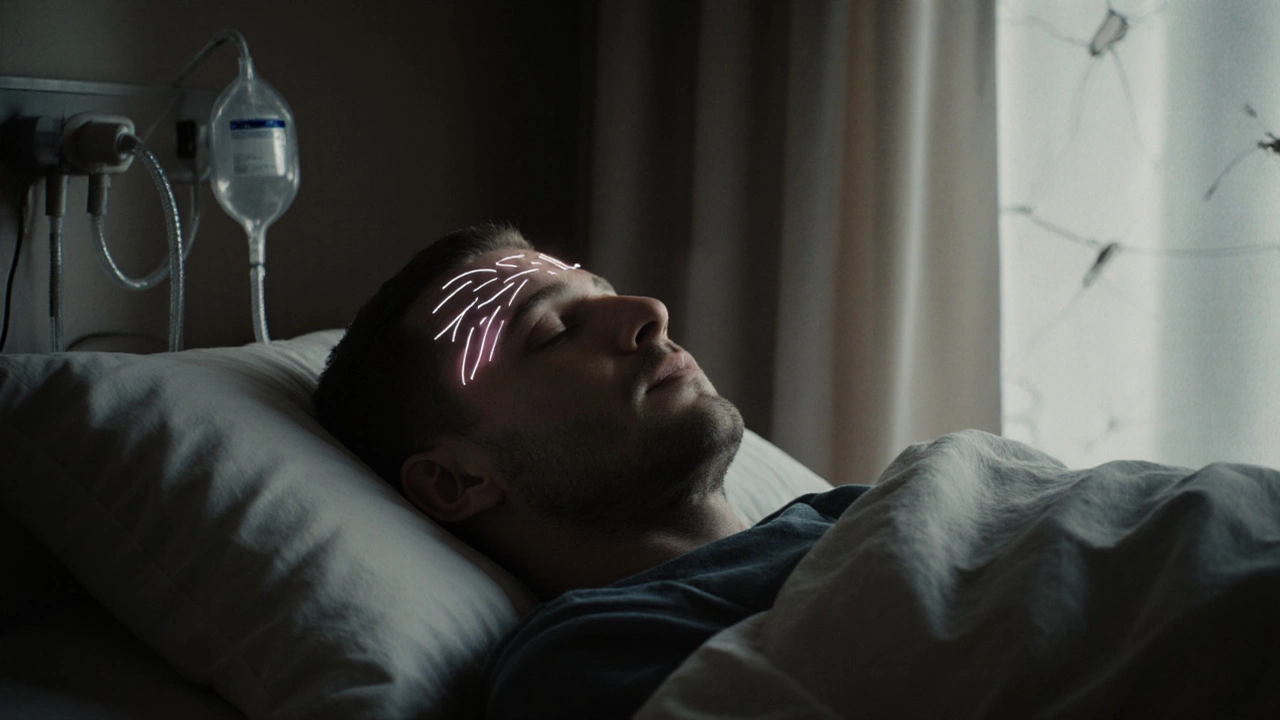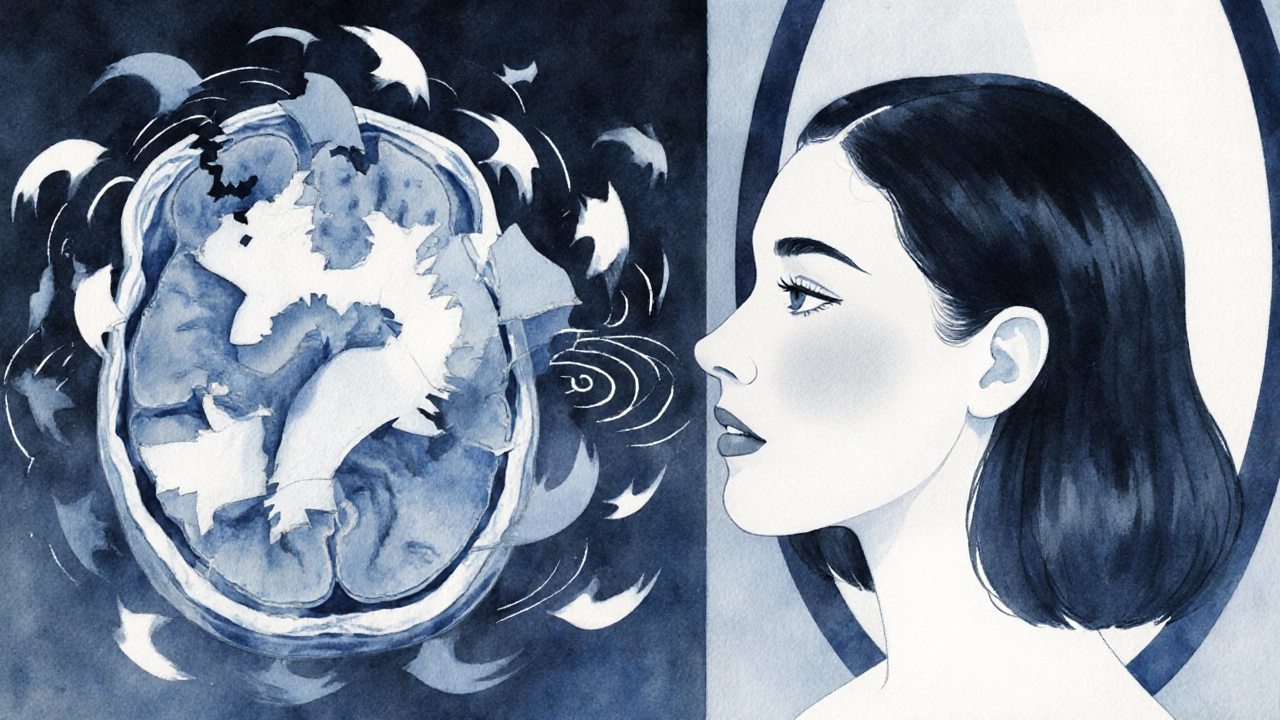What's the rarest mental disorder? Real cases, symptoms, and why it's misunderstood
 Nov, 20 2025
Nov, 20 2025
Most people know about depression, anxiety, or even bipolar disorder. But what about the mental disorders that affect fewer than 1 in a million people? These aren’t just plot twists in movies-they’re real, documented conditions that challenge everything we think we know about the human mind. One of the rarest is clinomania, a condition where a person is so overwhelmed by the need to stay in bed that they refuse to get up, even for food, water, or bathroom breaks. It’s not laziness. It’s not depression. It’s a neurological disconnect between the brain’s drive to move and its perception of safety.
What makes a mental disorder "rarest"?
Rarity in mental health isn’t just about how few people have it. It’s about how little we understand it. Many rare disorders go undiagnosed because doctors don’t recognize them. Others are so unusual that they’re only recorded in single case studies. The DSM-5, the diagnostic manual used by psychiatrists worldwide, doesn’t list every rare condition. Some are classified under "Other Specified Disorders," which means they’re real but don’t fit neatly into standard boxes.
Take foreign accent syndrome. After a stroke or head injury, a person suddenly speaks with what sounds like a foreign accent-maybe French, Chinese, or Eastern European-even though they’ve never lived there. In 2012, a British woman developed a Chinese-sounding accent after a minor car accident. Neurologists found her speech patterns had shifted due to damage in the left frontal lobe, the area controlling motor speech. Her brain reorganized how it produced sounds, and listeners interpreted it as a foreign accent. No one taught her to speak that way. Her brain did it on its own.
Clinomania: When bed becomes a prison
Clinomania is one of the most extreme examples of a rare disorder. It’s not listed in the DSM-5, but it’s been described in medical journals since the 1800s. People with clinomania aren’t tired. They’re not depressed. They’re not lazy. Their brains send a signal that staying in bed is the only safe option. One documented case involved a 34-year-old man in Sweden who stayed in bed for 17 years. He ate through a tube, used a catheter, and had caregivers turn him every few hours. He didn’t want to die-he just couldn’t bring himself to leave the bed. His brain had rewired his sense of reality so that movement felt like a threat.
Modern scans show that people with clinomania have reduced activity in the basal ganglia, the part of the brain that helps initiate movement. It’s similar to Parkinson’s, but without the tremors. The person is fully conscious. They know they should get up. They want to. But their brain won’t let them. Treatment? There’s no standard. Some respond to deep brain stimulation. Others need intensive cognitive therapy to rebuild the association between bed and safety. Most don’t get diagnosed until years later-because no one believes them.
Apotemnophilia: The urge to amputate
Another rare condition is apotemnophilia, also known as body integrity identity disorder. People with this condition feel that a healthy limb-usually a leg or arm-doesn’t belong to them. They don’t want to hurt themselves. They want to remove it. Some spend years trying to get doctors to amputate their limbs. In the 1990s, a man in the U.S. paid a surgeon $10,000 to cut off his leg. The surgeon went to prison, but the man said he felt "whole" for the first time in his life.
Brain scans show that in people with apotemnophilia, the right parietal lobe, which maps the body’s physical boundaries, doesn’t include the limb they want to remove. It’s as if their brain’s internal map says, "That leg isn’t mine." It’s not a fantasy. It’s a neurological mismatch. Some patients now get virtual reality therapy to help their brain adjust. Others find relief through psychological support, even if they never get surgery.

Foreign accent syndrome: When your voice betrays you
Foreign accent syndrome happens after brain trauma-stroke, head injury, even severe migraines. The person’s speech changes rhythm, pitch, and intonation so much that listeners hear a foreign accent. In one case, a woman from Texas developed a British accent after a car crash. She’d never been to the UK. She didn’t know anyone from there. But her brain had rewired how it produced vowels and consonants. Listeners didn’t hear a speech disorder-they heard a new nationality.
Doctors used voice analysis software to compare her speech before and after the accident. Her tongue movements were the same, but the timing had shifted. She lengthened certain vowels, softened others. That’s what makes an accent. It’s not about vocabulary. It’s about timing. The brain’s motor control center got scrambled, and her voice became something new.
Why don’t we hear more about these?
Rare disorders are hard to study. You can’t run clinical trials on a condition that affects three people in a country. Insurance won’t cover treatment because there’s no proven protocol. Doctors don’t learn about them in medical school. And when someone describes symptoms that sound impossible, they’re often labeled as attention-seeking or mentally unstable.
Take Alice in Wonderland syndrome. People see their own body parts shrink or grow. Walls move. Time slows. It’s linked to migraines, epilepsy, or Epstein-Barr virus. A child in the UK described her hand as "tiny like a doll’s" during a fever. Her parents thought she was hallucinating. She was diagnosed with the syndrome after a brain scan showed unusual activity in the occipital lobe. She’s now 18 and fine-but she spent years being told she was lying.

What should you do if you or someone you know has strange symptoms?
If someone reports a symptom that sounds bizarre-like suddenly speaking with a foreign accent, feeling a limb doesn’t belong to them, or being unable to leave bed despite being fully aware-don’t dismiss it. Go to a neurologist or a neuropsychiatrist. These conditions are real. They’re not psychosis. They’re neurological. Brain imaging, speech analysis, and detailed medical history can uncover the cause.
Don’t wait for a diagnosis to match a textbook. Many rare disorders don’t have names yet. What matters is that the person’s suffering is real. The brain is the most complex organ we have. It can break in ways we’re still learning to understand.
Are these disorders getting more common?
They’re not. But we’re getting better at spotting them. Better brain scans. Better recording tools. More awareness among doctors. In the 1980s, foreign accent syndrome was considered a myth. Now, over 100 cases are documented worldwide. Clinomania was once called "bedridden depression." Now we know it’s a distinct neurological condition.
Technology is helping. AI tools can now detect tiny shifts in speech patterns that humans miss. Wearable sensors track movement patterns that reveal hidden motor disorders. We’re not just diagnosing more-we’re understanding more.
What’s next?
Research into rare disorders is slow but growing. Universities in the UK, Sweden, and Japan are starting dedicated programs. The NHS now has a rare neurological disorders clinic in London. In 2024, a patient with clinomania in Birmingham responded to a new form of transcranial magnetic stimulation. After six weeks, she got out of bed for the first time in five years. She didn’t walk right away. But she sat up. And that was enough.
Rare doesn’t mean unimportant. It means we haven’t caught up yet. The human mind is stranger than we think. And sometimes, the most unusual symptoms are the ones that teach us the most.
Is clinomania the same as depression?
No. People with clinomania aren’t sad or hopeless. They’re fully aware, sometimes even anxious about not getting up. Depression involves low mood, guilt, or loss of interest. Clinomania is a motor initiation failure caused by brain wiring issues. One person described it as "wanting to move but feeling like the floor is made of magnets."
Can you get foreign accent syndrome without a brain injury?
Rarely. Most cases follow trauma like stroke, head injury, or severe migraines. But there are a few documented cases after psychological trauma or seizures. In one case, a woman developed a Scottish accent after extreme stress-no physical injury. Brain scans showed temporary changes in speech areas. It resolved after six months.
Is apotemnophilia a form of body dysmorphia?
No. Body dysmorphia is about perceived flaws in appearance-like thinking your nose is too big. Apotemnophilia is about a limb feeling foreign or alien, like it doesn’t belong to your body. It’s not about beauty. It’s about identity. Brain scans show it’s a neurological mapping error, not a distorted self-image.
Are these disorders genetic?
There’s no strong evidence of direct inheritance. Most cases follow brain injury, infection, or neurological disruption. But some researchers suspect underlying genetic vulnerabilities-like how certain people are more prone to migraines or epilepsy. More studies are needed.
Can these conditions be cured?
Some can be managed. Clinomania has seen improvement with deep brain stimulation and targeted therapy. Foreign accent syndrome often resolves on its own over months. Apotemnophilia can be managed with therapy, though amputation remains controversial. There’s no universal cure-but understanding them is the first step toward helping.